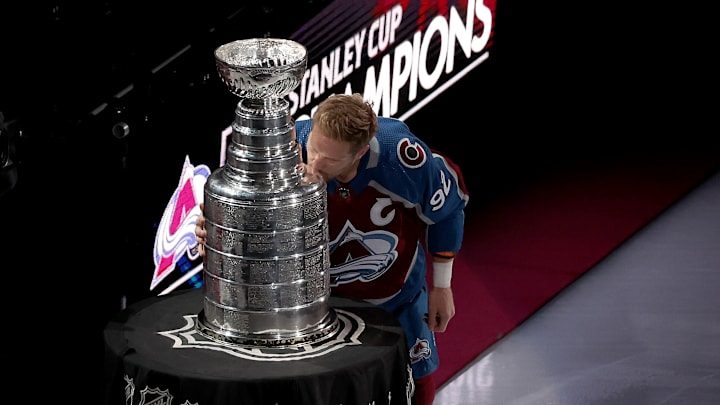Rumors have persisted regarding Colorado Avalanche captain Gabriel Landeskog’s potential retirement. While Landeskog has categorically denied the rumors, question marks surround the injured Avs’ captain.
My colleague Graham Tiedtke went into detail on the specific nature of those rumors in this interesting piece. So, my aim in this article is to explore why Landeskog can’t retire even if he
wanted to. Here are three reasons for this claim and they go beyond purely financial issues.
3 reasons why Gabe Landeskog can’t retire even if he wanted to
Landeskog would leave money on the table
In essence, retirement would mean leaving millions of dollars on the table for Landeskog.
Now, let’s be clear. This isn’t about a greedy player looking to get paid for nothing. Standard NHL contracts contain provisions for these types of situations. That is why teams must do their due
diligence before signing players to multi-year deals.
When Landeskog signed his eight-year extension in 2021, there was no indication his knees would be injured so badly to the point where he couldn’t play for two full seasons. As such, the Avalanche signed their captain to a max-term deal, keeping him in the fold for the foreseeable future.
But when Landeskog got hurt at some point in 2022, he played through the injury to the point where surgery was needed to repair the damage. He missed the entire 2022-23 season, hoping to get back
the following year.
When he also missed the entire 2023-24 season, rumors picked up about his retirement. But here’s the deal: Current NHL contracts are designed to ensure players aren’t forced to walk away from them. If they do, it would set off a series of legal implications.
These provisions were put into place to protect players. That protection implies that players can’t coerced into retiring or blackballed until they walk away from their contracts. If a player retires, both the team and the player must agree to terminate the deal.
That agreement implies the team terminates the contract, not the player. But that termination requires a justifiable cause, which a player’s retirement is not. It’s not like a justifiable breach of
contract such was Corey Perry’s situation with the Chicago Blackhawks last season.
Retirement is not a cause for termination, which means that the player is punished by leaving money on the table, while the team remains on the hook for the contract even though the player is
officially retired.
